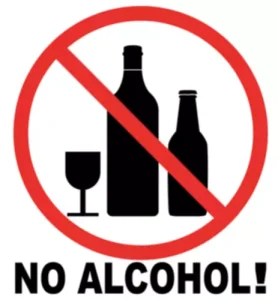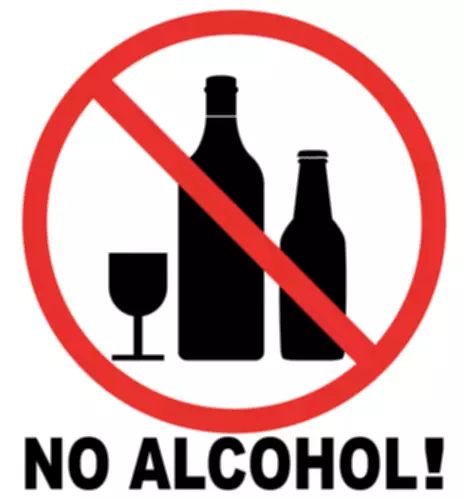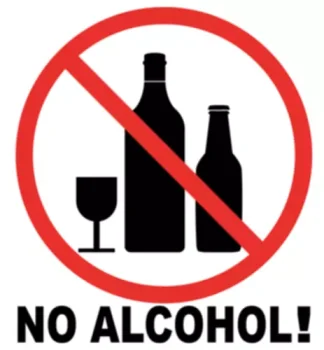
Heavy drinking is connected to illnesses that lead to poor health, including heart conditions. Excessive alcohol consumption can lead to high blood pressure, heart failure, or stroke. does alcohol thin or thicken blood It can also contribute to cardiomyopathy, which affects the heart muscle.

Risks Of Drinking Alcohol For Blood Thinning Effects

Just like the Dietary Guidelines, AHA and the CDC do not recommend alcohol consumption for individuals who do not already drink. They also encourage people who drink to do so in moderation in order to minimize some of the potential negative side effects of long-term alcohol use. Antioxidants, Halfway house called polyphenols, may help protect the lining of blood vessels in the heart. Drinking a glass or two of non-alcoholic red wine may reduce your risk for heart disease.
Effects of Alcohol On The Body
An enlarged spleen or hypersplenism can lead to thin blood, and can cause platelets to get caught inside the spleen. Calls to our general hotline may be answered by California Rehab Campus, Day Light Recovery Florida, Banyan Treatment Center, US Addiction Services, Recovery Helpline, or other treatment providers. Don’t worry, we are in network with over 100 insurances nationwide. Below are answers to common questions about whether alcohol may thin the blood.
- Acting as a blood thinner, alcohol can then also lower the risk for a stroke, which is when there is a reduced flow of blood to the brain due to blocked or narrowed arteries.
- Read on to learn more about how alcohol use affects you differently as you age and how you can still enjoy a drink or two on occasion without waking up with a nasty hangover.
- Plus, so long as you continue drinking you are also at risk of developing an addiction to alcohol.
- When you cut yourself or experience an injury, platelets help to form a plug at the site of the injury to stop the bleeding.
Heart Diseases and Prevention: A Comprehensive Guide
One to two drinks of alcohol daily can impact how platelets coagulate, or stick together, making your blood slightly thinner than normal. However, heavy drinking can trick your platelets into turning on when they aren’t needed, creating blood clots. Long-term alcohol use can also increase the production of platelets, which also increases clot risk. Although it’s usually recommended that you do not drink alcohol on blood thinners, the safest thing for you to do is to ask your doctor if it’s safe. Both alcohol and blood thinners like Coumadin can thin your blood, so taking them together may increase their anticoagulant effects to the point where it increases your risk of hemorrhaging or bleeding. However, this lack of blood clotting caused by alcohol could also potentially increase your risk for hemorrhagic strokes or strokes that occur when weak blood vessels burst.
Alcohol abuse can have severe consequences on the cardiovascular system and increase the risk of various health conditions. For individuals who are taking anticoagulant medications such as warfarin or aspirin, it is crucial to understand the potential interactions between alcohol and these medications. These interactions can vary and may have adverse https://ecosoberhouse.com/ effects on blood clotting.

Hypertensive Heart Disease: All You Need To Know
Alcohol can affect blood pressure alcohol in both the short and long term. When you drink alcohol, several processes occur in your body that influence blood flow and blood pressure levels. High blood pressure, also known as hypertension, is a condition where the force of the blood against the artery walls is consistently too high. This increased pressure can strain the heart and blood vessels, leading to serious health issues such as heart attack, stroke, and kidney disease. Often called the “silent killer,” high blood pressure typically shows no symptoms until a severe event occurs, making regular blood pressure readings crucial for early detection.
Remember, it’s never too late to make positive changes and prioritize your health. While it’s clear that alcohol can influence blood consistency and clotting, the effects aren’t entirely one-sided. When you use prescription medicines to treat the condition whereby your blood is thick, you should consult with your doctor first. Never attempt self-medication or else you may unknowingly worsen your condition.
- Drinking a moderate amount of alcohol can help prevent blood clots and reduce the risk of a heart attack, but there are a few risks as well.
- Long-term drinking may lead to various cancers, high blood pressure, stroke, heart disease, digestive problems, or liver disease.
- This article discusses the effects that alcohol has on the blood in both the short and long term.
Ohio Recovery Center
Alcohol affects balance and coordination, making falls more likely. Read on to learn more about how alcohol use affects you differently as you age and how you can still enjoy a drink or two on occasion without waking up with a nasty hangover. Join our supportive sober community where each day becomes a step towards personal growth and lasting positive change. Discover the costs of drug rehab without insurance, factors influencing expenses, and financial aid options to make recovery accessible. If high standards of living, a beachfront lifestyle, and innovative programming would help you build healthy habits, then look no further than Ocean Recovery in Orange County, CA.
Can You Drink Alcohol While on Blood Thinners?
Overall, reducing the risks of blood thinning from alcohol requires a combination of moderation, seeking medical advice, and seeking help from a rehab if you’re struggling with addiction. Many people wonder how much alcohol it takes to thin the blood or if just one beer can have this effect. While moderate drinking might offer some heart health benefits, excessive consumption can increase the risk of bleeding, particularly if you’re taking medications like blood thinners.
The Long-Term Effects of Alcohol
Experts define binge drinking as consuming in excess of four drinks for females or five drinks for males within around 2 hours. Quality sleep often becomes harder with age and alcohol can make this even more challenging. While a drink might make you feel drowsy at first, alcohol actually disrupts sleep cycles. It can prevent you from reaching the deeper stages of sleep, which are crucial for feeling rested.

